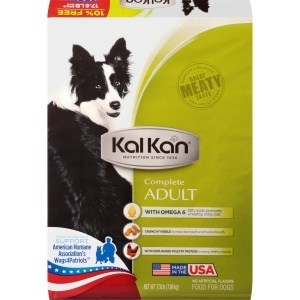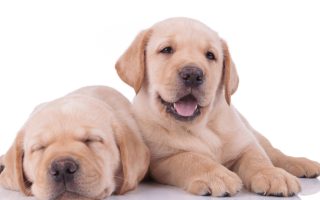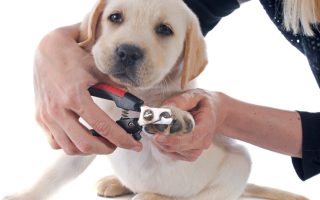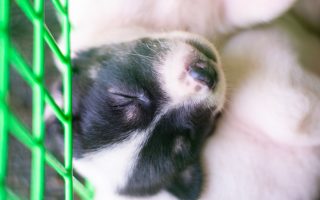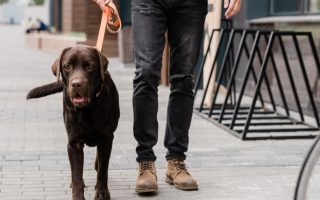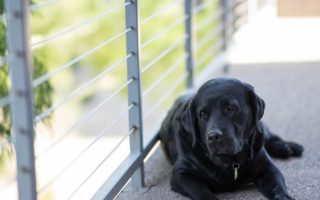Labrador Retrievers are one of the most popular dog breeds. However, you may have noticed Labrador fur coming out in clumps, which may cause you to worry about Labrador puppy hair fall.
To help you deal with the subject, here are some potential causes of Labrador puppy hair loss.
The baby coat
You might get worried about your Lab puppy starting to shed a lot more by the time they are 3-5 months old due to patches of missing fur or scruff.
However, there is usually no need to worry.
If your puppy is losing hair at that age without any signs of allergies or irritation, they may only be losing their baby coat.
It’s normal for them to shed more than usual at this age as a result of Labrador puppy coat change. Don’t worry, though, since it may stop a month after they started excessively shedding.
Their baby coat is very soft, but they shed it to prepare them for a mature coat. Their new adult coat will be a bit rougher, but it will be better for them since it acts as a double coat.
With an undercoat that will help regulate their temperature and a top coat that will shield them from superficial wounds and repel water, they will be protected from harmful UV rays, dirt, and moisture.
Therefore, you should not panic if your Lab puppy sheds a lot at 3-5 months old.
You may only need to consult a vet if their new fur does not grow when they are 7-8 months old.
You can even use Lab shedding brush for their coats.
Labrador puppy hair fall Due to Parasites
One reason behind your Labrador puppy hair fall problem may be parasites.
Parasites like worms, fleas, ticks, lice, and mites can irritate the skin and make your Lab puppy feel itchy.
Dogs do not know that they should not scratch. So, when they feel itchy, they will nibble and scratch their skin.
These constant nibbling and scratching can irritate the skin, which can also lead to patches and hair loss.
Luckily, you can make use of dog hair loss home remedies to get rid of these parasites.
However, you should be very wary when using dog hair loss treatments as well since they may not work or could harm your dog.
We advise, instead, that you consult a veterinarian for Labrador shedding solutions. Your vet will be able to tell you the best and most effective treatment to get rid of the parasites.
Some kinds of treatment a vet may give include pills, creams, and ointments.
You can also try to prevent your dog from getting parasites. You can keep their sleeping areas clean, wash their food and water bowls daily, and avoid other dogs with parasites.
Allergies and food intolerances
Allergies and food intolerances are another common cause of Labrador puppy hair fall.
Like people, allergies and food intolerances can cause allergic reactions in dogs.
In turn, these allergic reactions can result in hair loss, bald spots, and excessive hair fall. Other symptoms may include crusty skin, red skin, bumps, and lethargy.
Common food allergies in Labradors include wheat, fish, soy, and corn, which are actually common ingredients in dog food.
Even in small amounts, these ingredients can irritate your dog’s skin and be bad for their health.
We recommend, therefore, that you ask your veterinarian what are the best dog food brands that you can buy or what dog foods you can cook for your Lab.
Some people say that a raw diet full of unprocessed veggies and meat is the best. But, if you do this, be sure to speak to a veterinarian to make sure that you choose the right meat and clean and safe veggies.
Parasites like fleas can also count as an allergic reaction. A single flea bite can trigger an allergic reaction, leaving your dog feeling itchy and experiencing hair fall for days.
Other common allergies that a Lab can have are contact allergies, inhalant allergies, and bacterial allergies. Some examples of these are house dust, pollen, and certain fabrics.
The best way to deal with an allergy is to consult a veterinarian. They may offer topical treatments or medicine for your Labrador Retriever to ingest.
They may also be able to give your dog a new diet.
If you already know what your Lab is allergic to, try to keep those allergens away from them at all times. You can make sure that their area is clean to avoid letting any parasites linger.
Hot weather
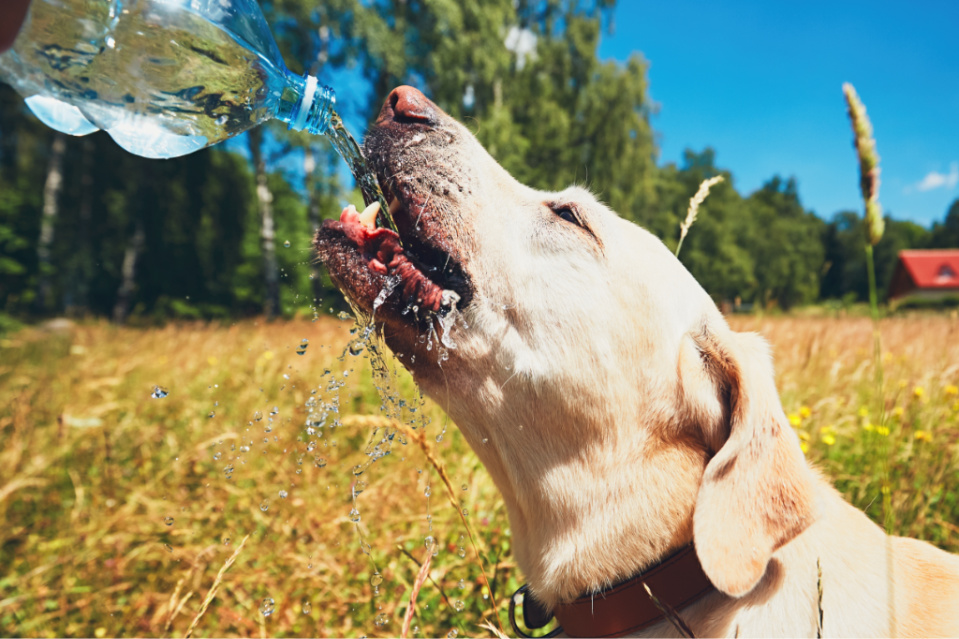
As mentioned earlier, Labs have a double coat that regulates their body temperature.
When it is winter, their undercoat gets thicker to protect their skin from the cold winds.
However, the undercoat gets thinner during the spring and summer. That means that your dog may shed a lot more when the weather is hot or when it is Labrador hair fall season.
If you notice that your Lab sheds when it is hot, you do not need to worry much.
They are simply shedding their undercoat, so you can regularly brush them to get rid of the excess fur.
However, it should not cause any bald spots, bruises, or irritation. So, if you notice these symptoms in your Lab, you need to speak to a vet.
Labrador puppy hair fall Due to Alopecia
In dogs, alopecia is partial or complete hair loss. It can also refer to failure to grow any hair or deficiencies in the dog’s coat.
Symptoms of alopecia include overall hair loss, bald patches, scaly skin, inflammation and crusting of the skin, and wounds from scratching.
Sometimes, alopecia can occur without known reasons. Some dogs may have alopecia but have no other conditions.
However, it typically comes as a symptom from a different issue, like an infection or disease.
Your Lab can also have alopecia from frequent scratching leading from itchy parasites.
Ideally, you need to speak to a vet who can diagnose your dog immediately to find out if they have alopecia.
Because it can affect their skin, endocrine system, lymphatic system, and immune system, you will want to get a treatment plant for your Lab right away.
Your vet may also be able to recommend supplements to add to your dog’s diet to encourage hair growth.
Other treatments may include antibiotics, conditioners, or antibacterial shampoos.
To conclude
The common causes of hair loss in Labs include them shedding their baby coat, parasites, hot weather, food intolerances, allergies, and alopecia.
You have the best chances of Labrador hair fall control when you follow your veterinarian’s advice to change their diet, add supplements, or give them medications.

